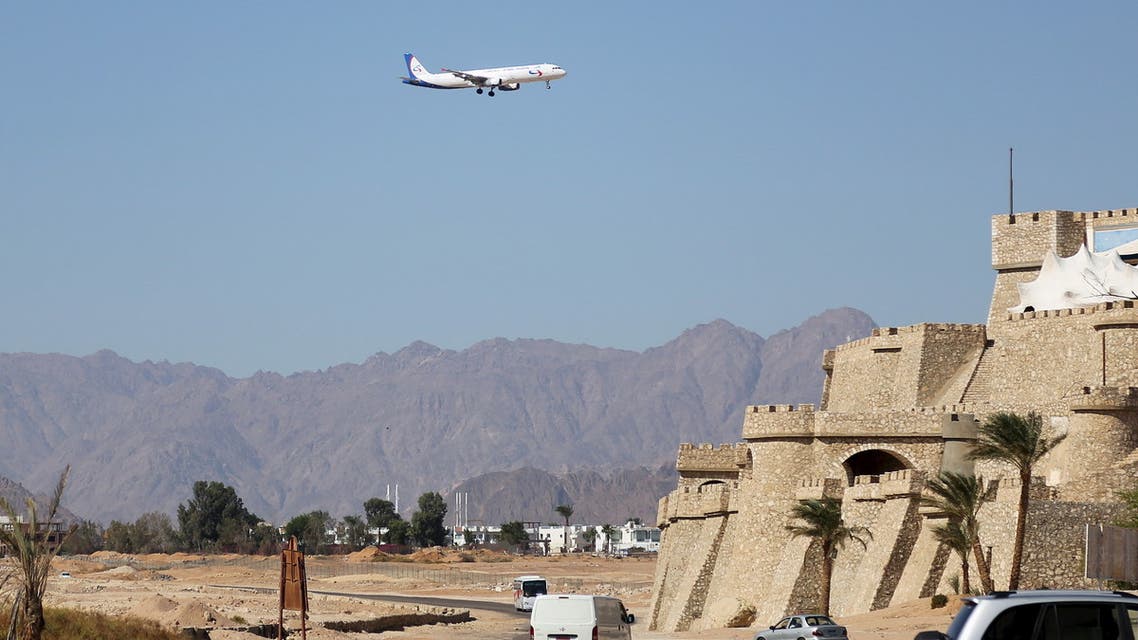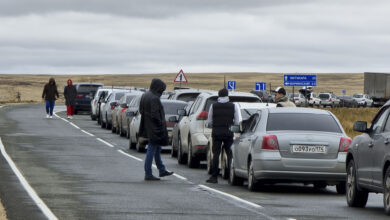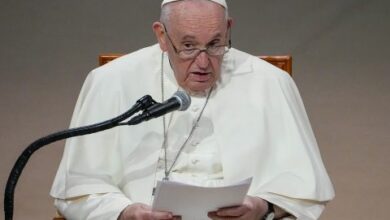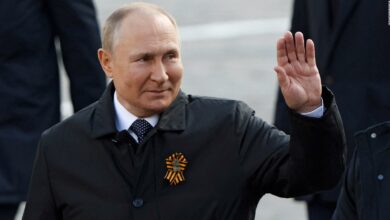Almaty, Kazakhstan—Free speech in Kyrgyzstan seems to be costing a whole lot more these days. At one time hailed as a beacon of press freedom in an otherwise autocratic region, Kyrgyzstan, a tiny Central Asian state nestled in between China and Kazakhstan, seems to be moving backwards at an astonishing rate.
On 22 December, Gennady Pavlyuk died after six days in a coma, sustained when the Bishkek-based journalist was thrown out a window while visiting nearby Almaty, just over the border with Kazakhstan. Pavlyuk’s murder is the latest in a string of violent incidents targeting journalists or opposition-related figures. The Pavlyuk incident stands out because it occurred outside of Kyrgyzstan’s borders. Pavlyuk was the director of Bely Parokhod, a Russian-language paper.
Both the Organization for Security and Cooperation in Europe (OSCE) and the US Embassy in Bishkek, Kyrgyzstan’s capital about 250 kilometers from Almaty, issued statements expressing concern over the rising numbers of incidents and the apparently political tone of the violence. Kyrgyz authorities denied blame and called the victims "unlucky."
"The Kyrgyz government must publicly acknowledge the safety crisis of Kyrgyzstan’s press and stop treating it as ‘crime as usual,’" responded Miklos Hararzsti, the OSCE’s media freedom representative.
“Over the past six months there have been a series of violent incidents against journalists and political commentators in the Kyrgyz Republic,” said the US Embassy in a statement released 24 December. “Journalists and free media are essential to a democratic and open society, and should be able to work without fear or intimidation.”
On 16 December, the same day Mr. Pavlyuk was thrown from a window in Almaty, Aleksander Yevgrafov, a Russian reporter for the RosBalt news service, was beaten in Bishkek. A week prior, Aleksander Knyazev, a prominent political analyst, was also beaten and threatened.
The violence has not only been directed at ethnic Russians. Almaz Tashiev, a young reporter, was beaten to death in July. Two police officers were subsequently arrested for his murder but later released.
On 9 December, Bolat Zhanuzakov, former secretary of the Kyrgyz Security Council under former President Askar Akayev, was beaten and hospitalized. In November, Kubanychbek Zhaldoshev, a journalist for the Osh Shamy was severely beaten in the city of Osh, the second largest city in Kyrgyzstan. His editors at the Osh Shamy were later sent a threatening letter along with a Kalashnikov shell.
In March, the Bishkek Reporter’s political columnist, Syrgak Abdyldayev, left the country for medical treatment after having both his arms broken and being stabbed twelve times.
The most recent attack, against Pavlyuk, seems particularly political. Pavlyuk often criticized the administration of President Kurmanbek Bakiev, and has been connected with prominent opposition figures. Omarbek Tekebayev, head of the opposition Atameken Party, claimed to have met personally with Pavlyuk only days before his murder.
“This is a politically motivated crime," Tekebayev told RFE/RL on 21 December. "It’s yet another attack in order to restrict freedom of speech in Kyrgyzstan."
The violence comes amid rising pressure on and criticism of the Bakiev administration, which critics say has failed to deliver on promised reforms.
Bakiev gained prominence during the 2005 "Tulip Revolution," a series of protests that forced long-time leader Askar Akayev to flee Kyrgyzstan for Moscow. Bakiev rode into the presidency later that year on a wave of popular support after Akayev was accused of election fraud. The new presidents promises of greater freedoms resonated with the Kyrgyz population, especially residents of the neglected south.
While Kurmanbek Bakiev’s political career began as the Soviet Union was crumbling, it resembled the rise of most Central Asian Soviet leaders in that it owed little to charisma and policy, and more to an understanding of the bureaucratic machinations of party life.
Bakiev spent the last twelve years of the Soviet Union working as chief engineer at a factory in Jalalabad, Kyrgyzstan’s third largest city nestled in the south near Osh. From there, he rose from city council, to city supreme soviet, to chairman for the Jalalabad region until he was appointed prime minister in late 2000.
Bakiev used his origins in Kyrgyzstan’s restive south to his advantage against Askar Akayev, a northerner, in the 2005 revolution after he lost the presidential election to Akayev. While the protesting that drove out Akayev was in Bishkek, most of the most active protestors had been bussed in from the south. Bishkek’s residents certainly weren’t thrilled with Akayev, but they weren’t the ones storming the Bastille.
Following the bloodless coup, however, Kyrgyzstan quickly gained a reputation for being a liberal outpost in a region where most of its neighbors are known as firm-handed dictatorships.
Bakiev’s reputation as a champion of democracy began to sour, however, in 2007, when he proposed a series of constitutional amendments to strengthen presidential power. When a parliamentary referendum failed to ratify Bakiev’s draft constitution in October 2007, he dissolved the legislature. Bakiev further tightened control in anticipation of the July 2009 presidential elections by creating hurdles to opposition eligibility.
The July 2009 election was widely regarded as illegitimate, with many reports of vote-rigging and intimidation. After calling for early elections that left his opponent, Almazbek Atambaev, scrambling, Bakiev managed to garner 87.7 % of the vote. Several of Atambaev’s regional campaign managers were detained just before the election, while police fired tear girls into protesting crowds.
Since July, Bakiev has been accused of blatant nepotism. He appointed his 32-year old son, Maksim, to head the Central Agency for Development, Investment, and Innovation, which is responsible for most major economic decisions in Kyrgyzstan. Many speculate he is grooming Maksim to succeed him as president. Bakiev also appointed his brother, Zhanysh, to head the Kyrgyz security services.
Furthermore, Bakiev has frequently been accused of patronage regarding services and supplies for Bishkek’s Manas Air Force Base, the US Army’s main staging point for flights into Afghanistan.
After a couple years of hope for Kyrgyzstan’s fledgling democracy, the Bakiev administration appears to be doing all it can to fit in with the neighbors.




